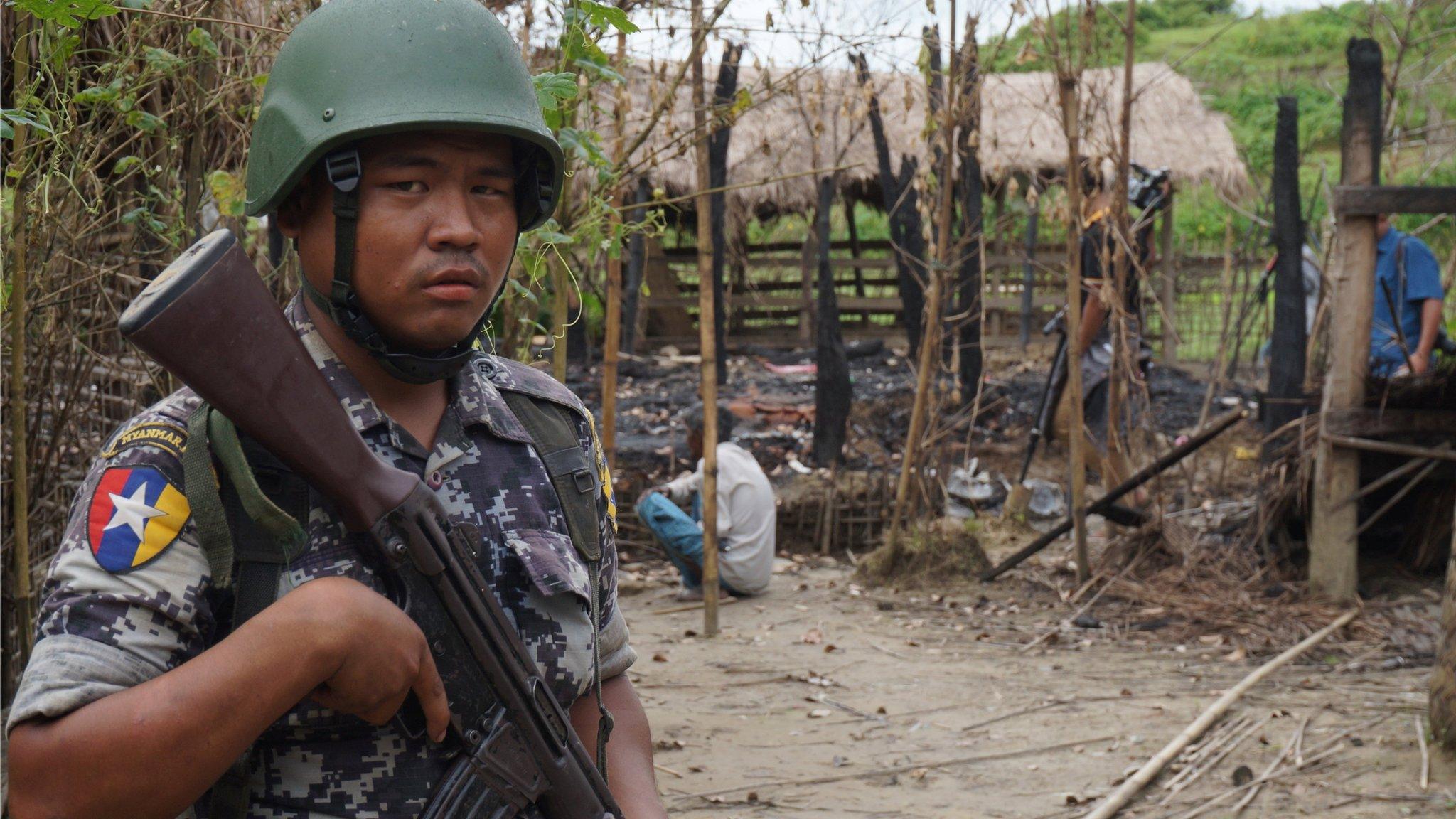Myanmar conflict: Bangladesh police allow Rohingya to flee
- Published
Rohingya families are living in makeshift shelters in refugee camps
Police in Bangladesh are ignoring government orders to prevent people fleeing violence in neighbouring Myanmar from crossing the border.
A BBC correspondent in Cox's Bazaar, Bangladesh, says members of Myanmar's minority Rohingya Muslim community are streaming through crossings, without being stopped.
The UN now estimates that 58,000 refugees have made it across.
Violence erupted in Myanmar's Rakhine state just over a week ago.
Refugees accuse the Myanmar security forces and Buddhist mobs of burning their villages.
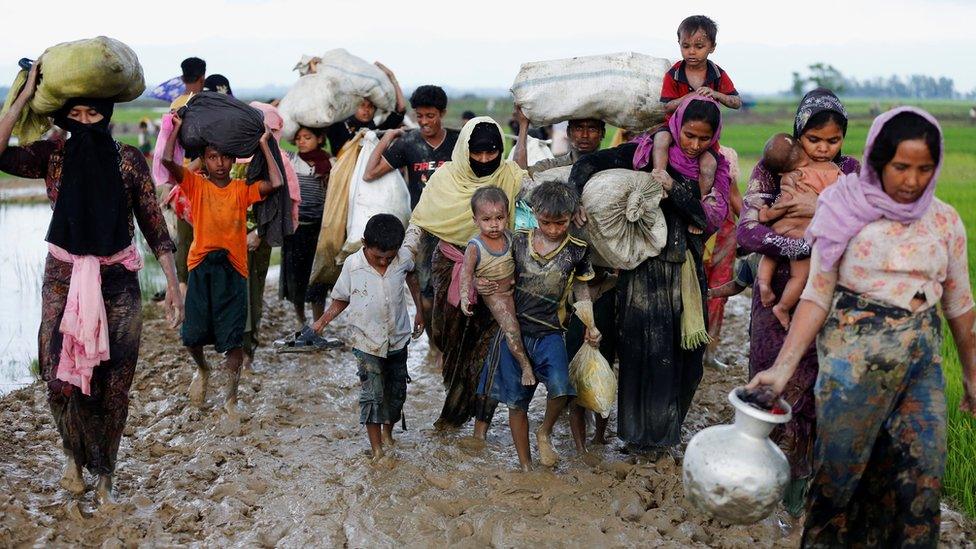
Rohingya refugees walk on the muddy road after travelling over the Bangladesh-Myanmar border
The Myanmar government says their security forces are responding to an attack last month on more than 20 police posts by Rohingya militants.
Subsequent clashes have sent civilians from all communities fleeing.
Another 20,000 Rohingya are thought to be stuck along the Naf river, which forms the border.
Aid agencies say they are at risk from drowning, disease and venomous snakes.
Campaigning group Human Rights Watch has released new satellite imagery from Myanmar which they say shows that more than 700 homes have been burned down in one Rohingya village.
Phil Robertson, Human Rights Watch's deputy Asia director, told the BBC: "As far as we can tell the destruction took place on the 25th [August] in the morning, and it appears to have been complete and total. Approximately 99% of the buildings are destroyed in that village."
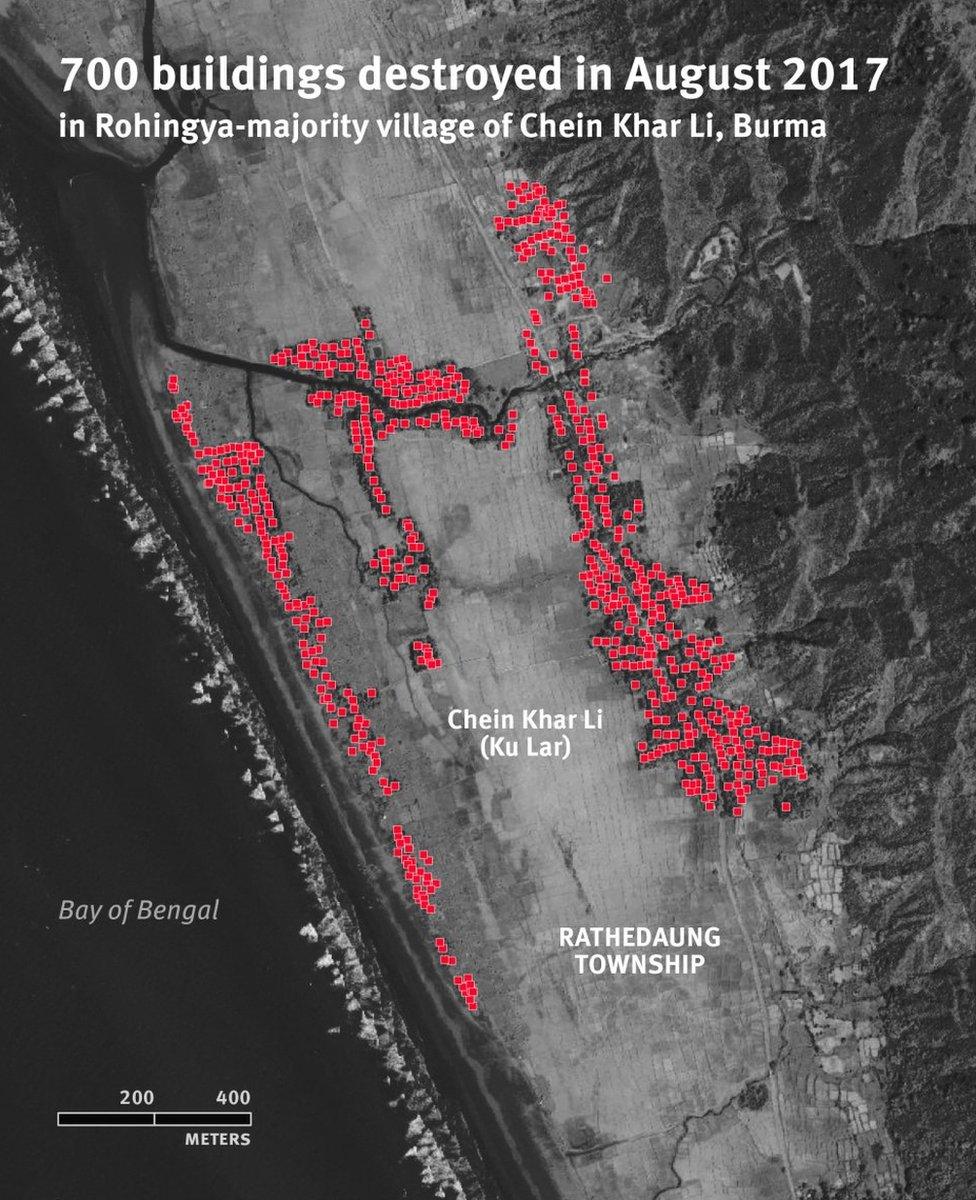
Human Rights Watch released this image, marking buildings they say have burned down
Rakhine, the poorest region in Myanmar, is home to more than a million Rohingya. They have faced decades of persecution in the Buddhist-majority country, where they are not considered citizens.
There have been waves of deadly violence in recent years. The current upsurge is the most significant since October 2016, when nine policemen died in attacks on border posts.
Until then there had been no indication of an armed insurgency, despite the ethnic tensions.
Both the attacks in October and on 25 August were carried out by a group called the Arakan Rohingya Salvation Army (Arsa).
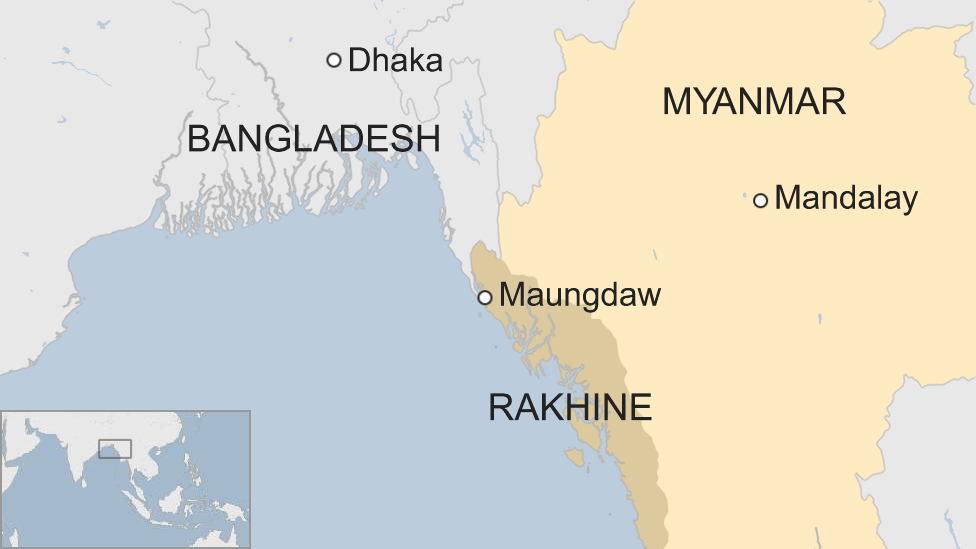
It says its aim is to protect Muslim Rohingya from state repression in Myanmar. The government says it is a terrorist group.
The military also carried out a crackdown after the attacks in October that led to widespread allegations of rape, murder and torture. Tens of thousands of Rohingya fled to Bangladesh then.
The UN is now carrying out a formal investigation, although the Burmese military denies wrongdoing.
Rohingya exodus: 'They shot dead my husband'
- Published2 September 2017
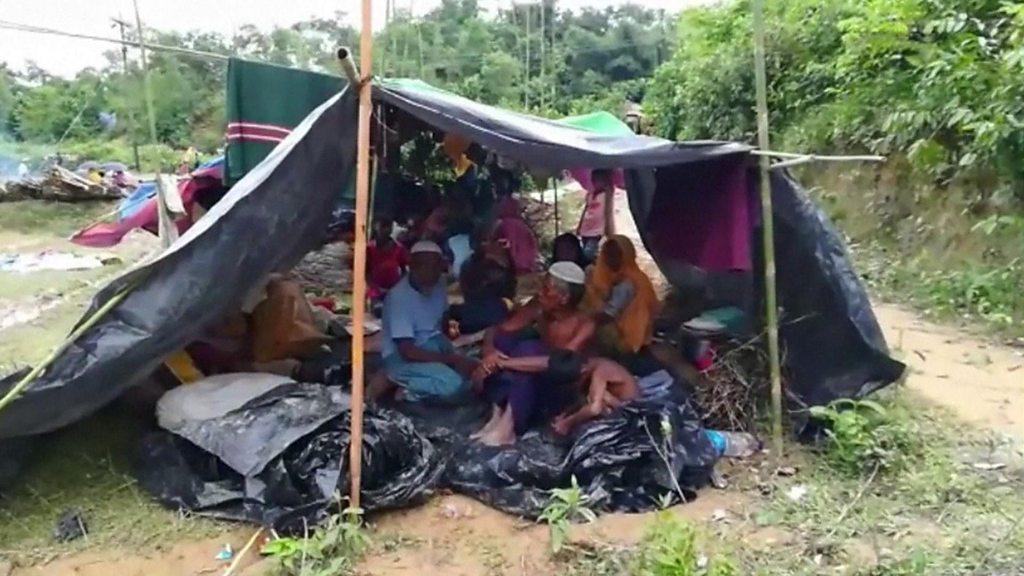
- Published31 August 2017
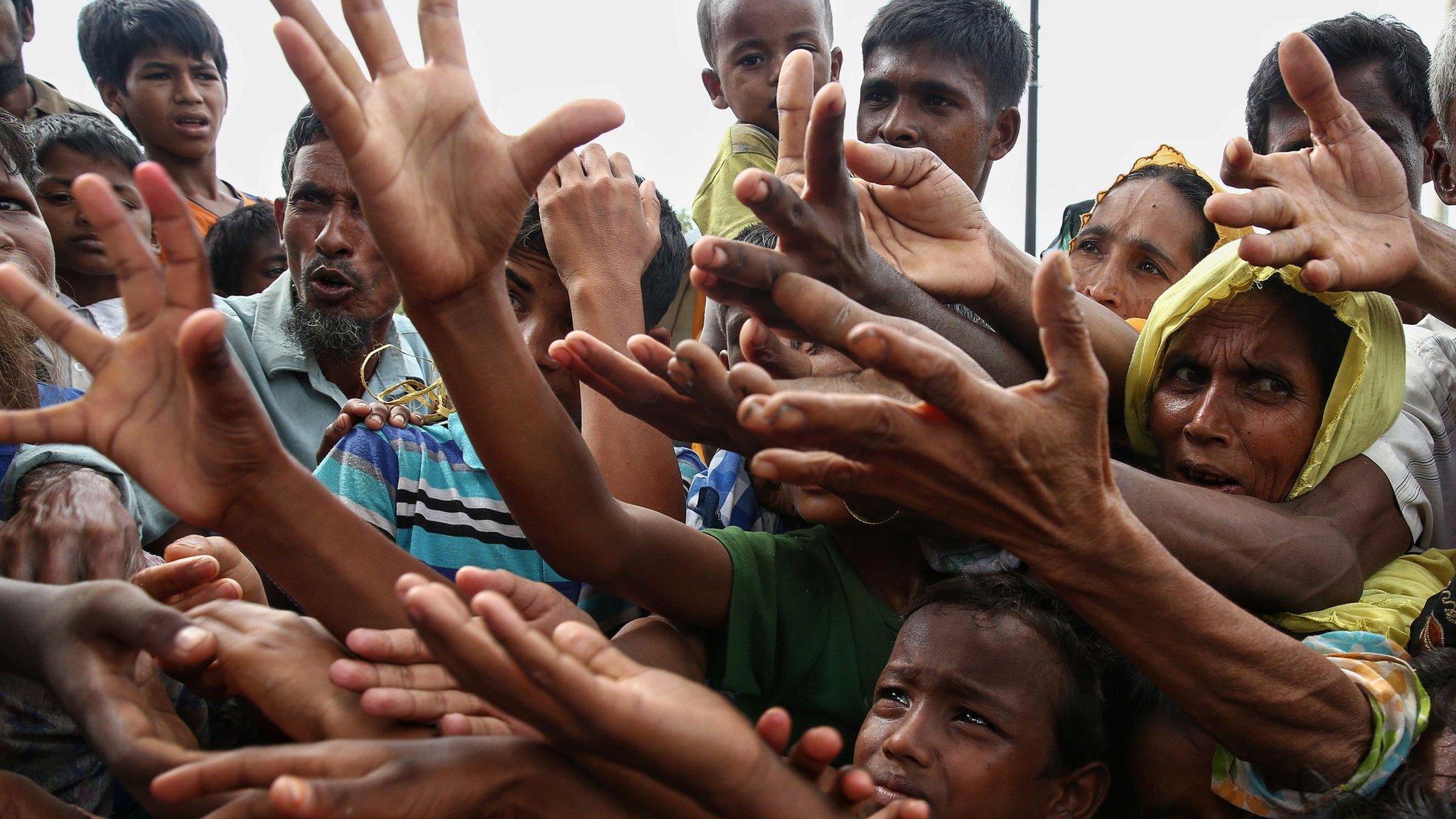
- Published2 September 2017
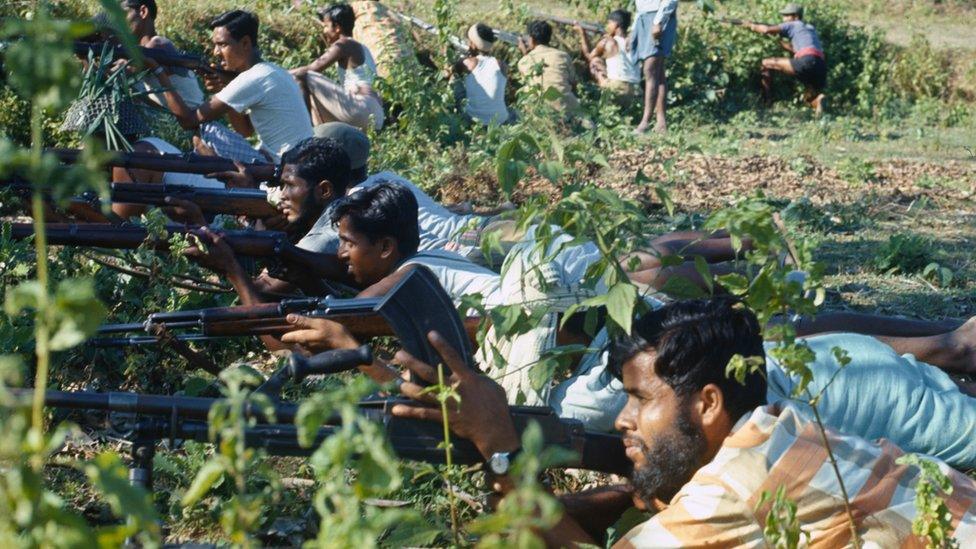
- Published19 September 2017
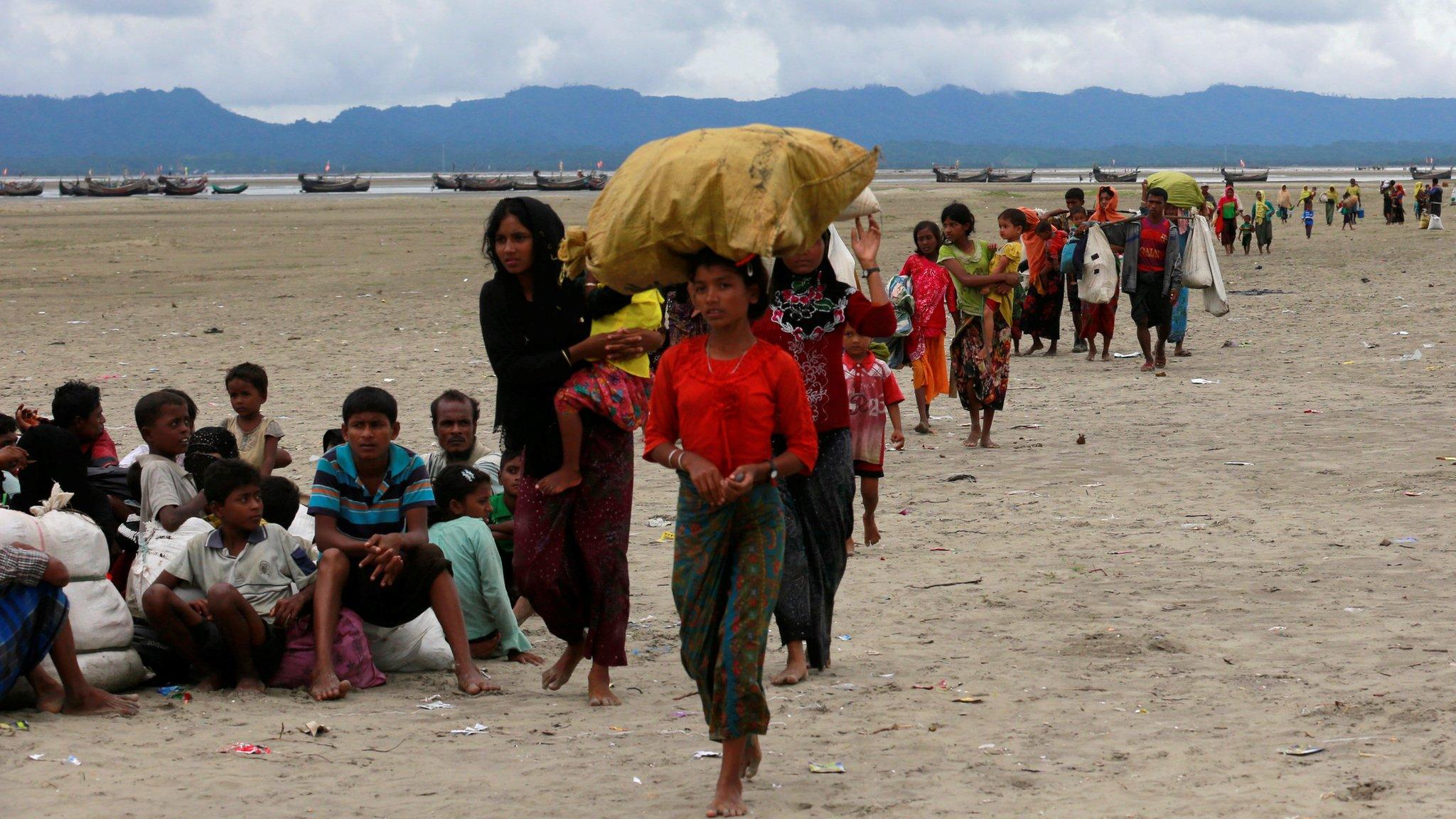
- Published24 August 2017
